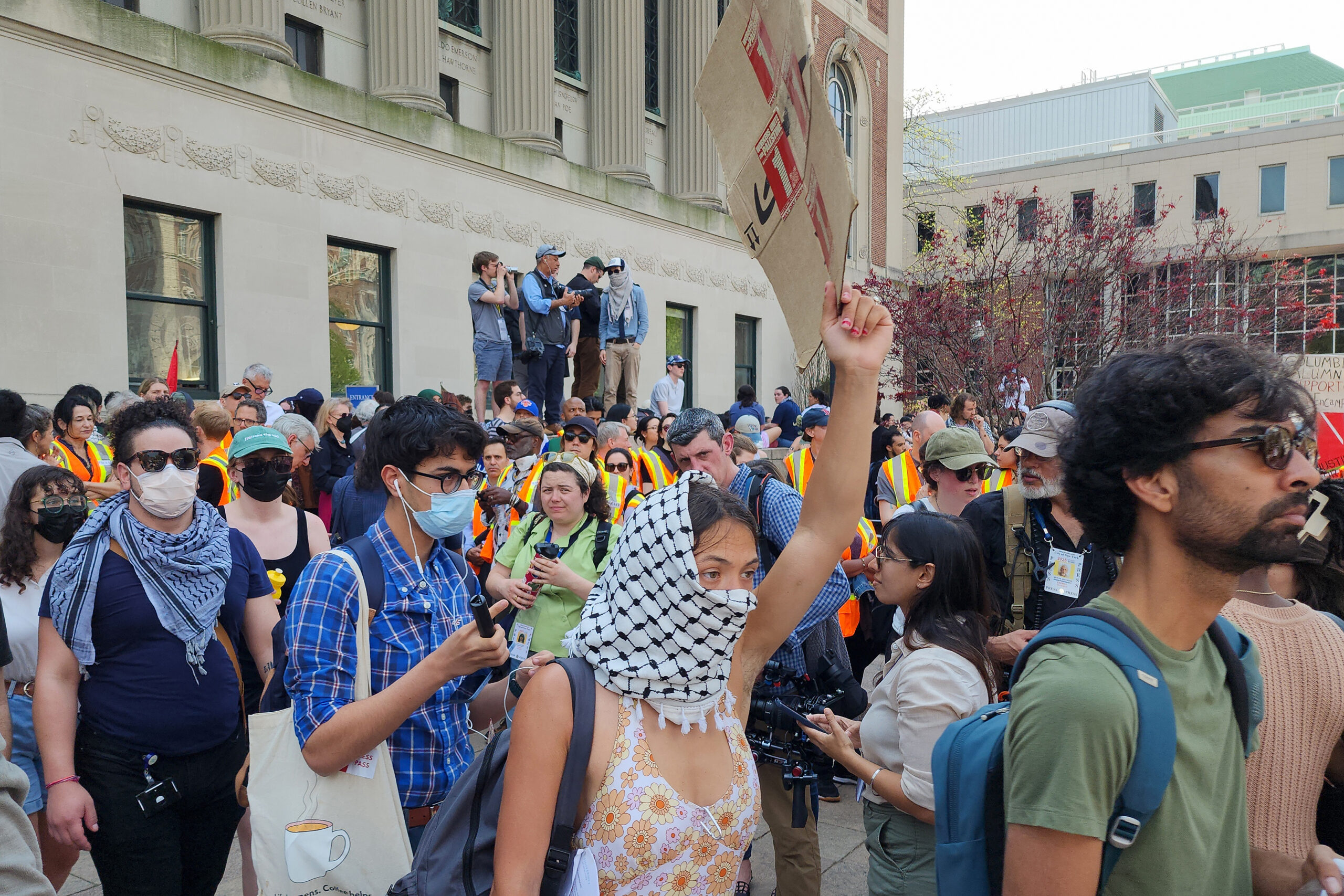
By Luis De Jesus
Apr 29, 2024, 16:46 PM EDT
Minouche Shafik, president of Columbia University in New York, announced this Monday that the institution will not withdraw its investments from Israel, contrary to one of the main demands of the students who have occupied the campus for the last two weeks in protest against the conflict in Gaza.
In a statement, Shafik reported that, despite five days of negotiations with activists to voluntarily dismantle the tent camp installed on the main campus, a satisfactory agreement has not been reached, the EFE news agency published.
The protesters demanded that the university stop investing in companies with interests in Israel while the conflict persists.
Given Columbia’s refusal, they were proposed to invest in sectors such as health and education in Gaza, including educational projects for children and support for displaced schoolchildren, a measure aimed at contributing to the well-being of the population affected by the war.
The president of Columbia University assured that protests can continue on campus as long as they are notified two days in advance. Likewise, she reaffirmed the institution’s commitment to free expression and the right to peaceful protest.
However, he noted that some Jewish students have experienced an intolerant atmosphere and have chosen to leave campus. In his message, he added a call for protesters to disperse voluntarily, while the leadership explores internal alternatives to resolve the crisis as soon as possible.

Deadline until 2:00 pm to withdraw
Columbia University also issued an ultimatum this Monday to the pro-Palestinian students occupying its campus: they have until 2:00 in the afternoon to leave the camp or face severe academic consequences.
In a letter released by various activist groups, including Columbia Students for Justice in Palestine, the university offers the campers the opportunity to avoid serious sanctions if they vacate the place, remove their belongings and sign an agreement, EFE noted.
The document establishes the commitment to respect university regulations, which according to have been violated on multiple occasions during the occupation of the campus. In addition, signatories agree to undergo a disciplinary process that could result in stronger sanctions if their participation in unauthorized activities is proven.
Those activists who leave the camp but refuse to sign the agreement will also face retaliation, since the university identified many of the participants.
If they do not identify themselves upon leaving and do not sign the document, they will be prevented from properly completing the academic semester and may be suspended until an investigation is conducted.
As the May 15 graduation date approaches, along with final exams, concerns are growing about the possible impact of pro-Palestinian protests on these events.
With the ultimatum, Columbia University appears to avoid police intervention to dismantle the camp, which has been the focus of political and media attention for the past two weeks.
Keep reading:
• Student protests against the war in Gaza spread across the US.
• Hamas released video showing two hostages asking the Israeli government for an agreement in Gaza
• Green Party presidential candidate arrested in anti-Israel protests at a St. Louis university
